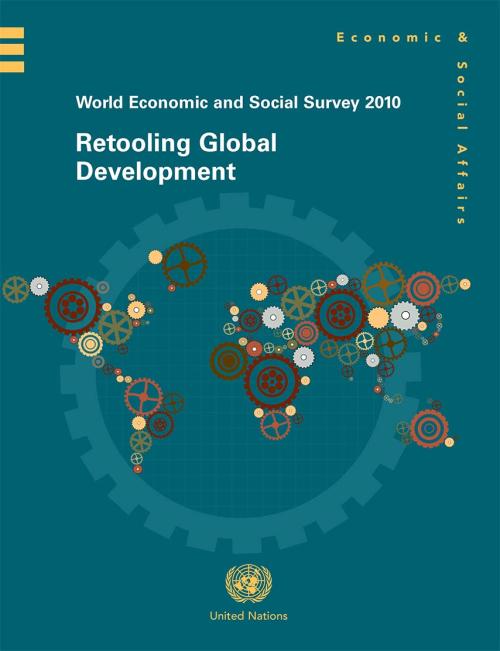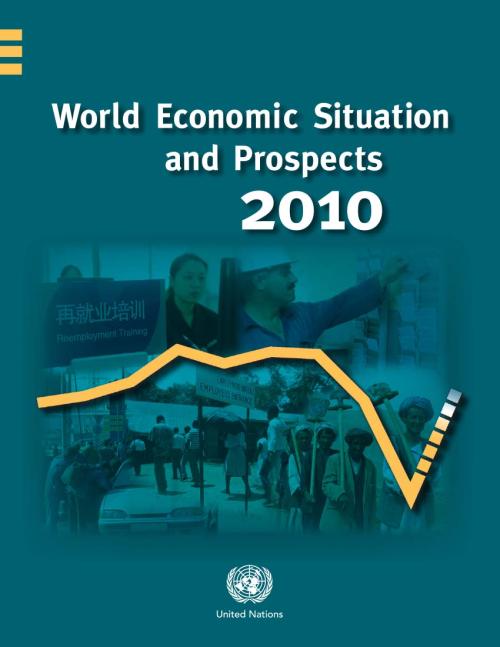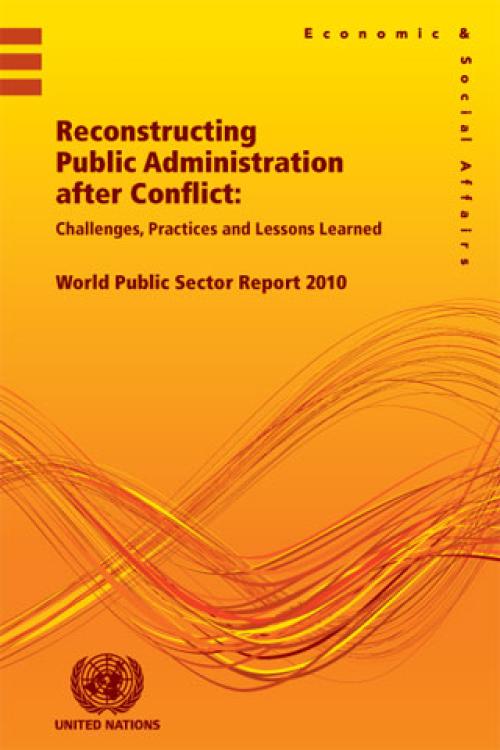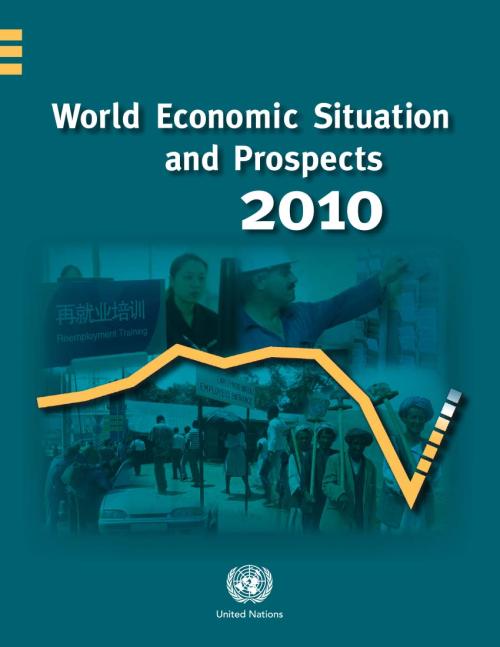Publications

The financial fallout in the USA which rapidly turned into a global economic crisis underscored the interconnectedness of the global economy. The economic and financial crisis came on top of several other crises. Skyrocketing but highly volatile world food and energy prices evidenced a decades-long neglect of food agriculture and failure to rein in increasingly speculative energy markets. And the effects of climate change, which is already a clear and present danger whose consequences are being felt in many part of the world in the form of more frequent and severe droughts and excessive rainfall, are compounding other crises.
These multiple dramas have unfolded simultaneously and…
The world continues to make advances towards the Millennium Development Goals (MDGs), despite the global economic downturn, but the rate of improvement remains too slow and countries must step up their efforts if the MDGs are to be achieved by their target date of 2015, a new United Nations report says. The annual assessment report, released today by Secretary-General Ban Ki-moon, shows that the world has made huge strides in reducing extreme poverty...
The World e-Parliament Report 2010 examines how global and regional inter-parliamentary cooperation can exploit synergies among nations to help parliaments in developing countries bridge the digital divide by overcoming the barriers of limited resources and technical constraints. It proposes to the parliamentary and donor communities a shared framework for e-parliament based on strategic goals that serve democracy, good governance, and the attainment of the internationally agreed development goals.
The 2010 United Nations e-Government Survey: Leveraging e-government at a time of financial and economic crisis was completed in December 2009 and launched in early 2010. The report presented various roles for e-government in addressing the ongoing world financial and economic crisis. The public trust that is gained through transparency can be further enhanced through the free sharing of government data based on open standards.

The world economy continued to improve in the first half of 2010, leading to a slight upward revision in the United Nations outlook for global growth. The pace of the recovery is too weak, however, to close the global output gap left by the crisis. The recovery is also uneven across countries. While growth prospects for some developing countries are encouraging, economic activity is lacklustre in developed economies and below potential elsewhere in the developing world.
Important weaknesses in the global economy remain. Despite the large amounts of liquidity injected into the financial system, credit growth remains feeble in major developed economies and the process of financial…

Reconstructing Public Administration after Conflict
The 2010 World Public Sector Report brings to the fore a very critical issue - how to reconstruct public administration in post-conflict situations so as to enable it to promote peace and development in countries that have been affected by civil war and destruction. It is a question that has remained unresolved for decades and has brought poverty, despair, and death to people in many corners of the world. The Report shows that no progress can be made in promoting peace, development and protection of human rights unless appropriate governance and public administration institutions are established, leadership and human resources…
The world needs to reassess the notion of poverty and the means for its eradication, according to a new report published by DESA’s Division for Social Policy and Development. The Report on the World Social Situation 2010 entitled “Rethinking Poverty” was critical of the current way that the international community identified and addressed poverty. The Report argued that “although the current monetary poverty-line approach...
The United Nations Statistical Yearbook is an annual compilation of a wide range of international economic, social and environmental statistics for over 200 countries and areas of the world, compiled from sources including UN agencies and other international, national and specialized organizations. The fifty-second issue contains data available to the Statistics Division as of June 2008 and presents them in 68 tables on topics including: agriculture; balance of payments; communication; development assistance; education; energy; environment; finance and gender.

The world economy is on the mend. After a sharp, broad and synchronized global downturn in late 2008 and early 2009, an increasing number of countries have registered positive quarterly growth of gross domestic product (GDP), along with a notable recovery in international trade and global industrial production. World equity markets have also rebounded and risk premiums on borrowing have fallen.
The recovery is uneven and conditions for sustained growth remain fragile. Credit conditions are still tight in major developed economies, where many major financial institutions need to continue the process of deleveraging and cleansing their balance-sheets. The rebound in domestic demand…
There are over 370 million indigenous people in some 90 countries, living in all regions of the world. The situation of indigenous peoples in many parts of the world is critical today. Poverty rates are significantly higher among indigenous peoples compared to other groups. While they constitute 5 per cent of the world's population, they are 15 per cent of the world's poor. Most indicators of well-being show that indigenous peoples suffer disproportinately.
The International Recommendations for Tourism Statistics 2008, which has been released in 2010, provides a comprehensive methodological framework for collection and compilation of tourism statistics in all countries irrespective of the level of development of their statistical systems. The publication also contains a wealth of information that might be of interest to data users who would like to understand better the nature of tourism data. The international recommendations were drafted by the World Tourism Organization in close cooperation with the UN DESA Statistics Division, the International Labour Organization and other members of the Inter-Agency Coordination Group on Tourism…
The Supplement covers a number of topics deemed to be beneficial to trade data compilers, including an overview of compiling practices, the revised International convention on the simplification and harmonization of customs procedures (revised Kyoto Convention), the 2007 edition of the Harmonized Commodity Description and Coding System, specific compilation issues such as goods for processing and re-exports and an overview of the differences between IMTS and general merchandise.
 Welcome to the United Nations
Welcome to the United Nations